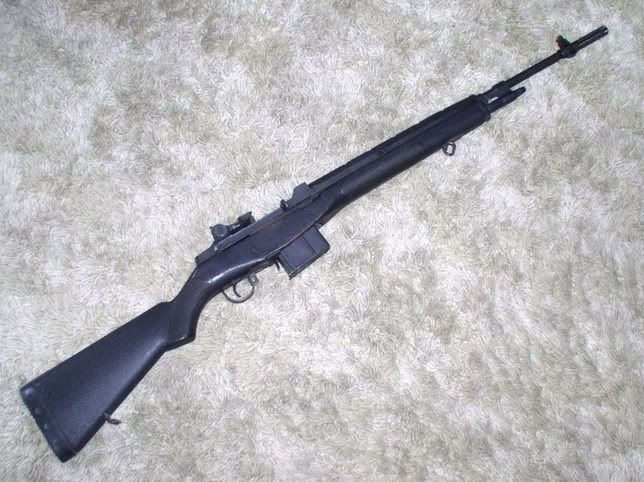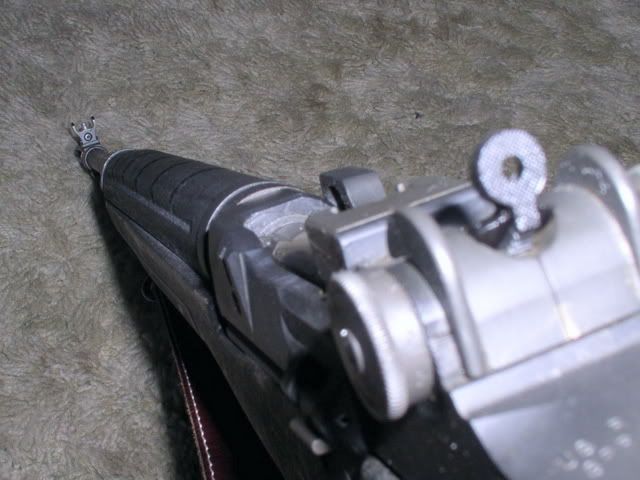Despite being "raised" on bot action from age 6, I was never as enchanted with that action as my dad was with it but he was biased against semiactions - maintained they were "less safe". Personally, my thinking was "safety" was between the ears of the shooter, not the rifle action.
Consequently, when the '03 Springfield I was inirially issued (which I liked - guns are like girls in that I never met one I couldn't find some likeable characteristics in them) in WWII was replaced with the M1 Garand, I was totally sold!!
However, my favorite semi-auto now is an M1A (semi-auto M14 civilian version) which has the advantage of detachable box magazine, better sights, and easier dissassembly for cleaning. Too bad they chose select fire for the military - I think that went a long way to kill it.


I can sure say if I were going into combat today, I'd sure rather carry a rifle that puts a .30 caliber bullet of 168 grains than a .233 caliber bullet at 68 grains in the target - even if the rifle is heavier to carry!!

Consequently, when the '03 Springfield I was inirially issued (which I liked - guns are like girls in that I never met one I couldn't find some likeable characteristics in them) in WWII was replaced with the M1 Garand, I was totally sold!!
However, my favorite semi-auto now is an M1A (semi-auto M14 civilian version) which has the advantage of detachable box magazine, better sights, and easier dissassembly for cleaning. Too bad they chose select fire for the military - I think that went a long way to kill it.


I can sure say if I were going into combat today, I'd sure rather carry a rifle that puts a .30 caliber bullet of 168 grains than a .233 caliber bullet at 68 grains in the target - even if the rifle is heavier to carry!!
